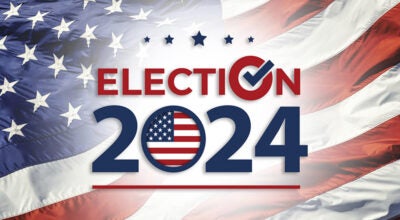Health overhaul to force changes in employer plans
Published 12:00 am Saturday, June 12, 2010
WASHINGTON (AP) — Over and over in the health care debate, President Barack Obama said people who like their current coverage would be able to keep it.
But an early draft of an administration regulation estimates that many employers will be forced to make changes to their health plans under the new law. In just three years, a majority of workers — 51 percent — will be in plans subject to new federal requirements, according to midrange projections in the draft.
Republicans said Obama broke his promise. Employer groups were divided.
It’s more evidence that the law will raise costs, said the U.S. Chamber of Commerce. But the Business Roundtable — representing CEOs of major firms — saw encouraging signs of flexibility, though it’s withholding final judgment. Some experts believe increased regulation will lead to improved benefits for consumers.
“On the face of it, having consumer protections apply to all insurance plans could be a good thing for employees,” said Alex Vachon, an independent health policy consultant. “Technically, it’s actually improved coverage.”
The types of changes that employers could have to make include offering preventive care without copayments and instituting an appeals process for disputed claims that follows new federal guidelines. The law already requires all health plans to extend coverage to young adult children until they turn 26. Such incremental changes can nudge costs up.
The Obama administration said the draft regulation is an early version undergoing revision. Nonetheless, the leaked document was getting widespread interest Friday in lobbying firms that represent employers and insurance companies and on Capitol Hill.
“What we are getting here is a clear indication that most plans will have to change,” said James Gelfand, health policy director for the U.S. Chamber of Commerce. “From an employer’s point of view that’s a bad thing. These changes, whether or not they’re good for consumers, are most certainly accompanied by a cost.”
Senate Republican Leader Mitch McConnell of Kentucky said it showed that Obama’s assurance that Americans would be able to keep the plans they currently have was “a myth” all along.
“Since its passage, Republican arguments against the bill have been repeatedly vindicated, even as the administration’s many promises about the bill have been called into question again and again,” McConnell said. “So Democrats may have passed this bill, but the debate is far from over.”
An administration official, speaking on condition of anonymity because the rules are still being written, said the final version will uphold Obama’s promise, accommodating employers’ desire for flexibility while protecting consumers from runaway costs.
Employer provided coverage is the mainstay of the nation’s health insurance system and is expected to remain so even after the new health care law is fully phased in.
The main issue in the 83-page regulation is how to deal with what the government calls “grandfathered” health plans.
Those are plans that predated the health care law and are exempt from many, but not all, of its consumer protections. Lawmakers created the special category to deliver on Obama’s promise that people can keep the coverage they have if they like it.
But health plans change frequently. Premiums and copayments keep rising. Coverage is expanded for some services and restricted for others. Lawmakers asked regulators to spell out how much an employer can change a plan and still claim it to be grandfathered, exempting it from closer federal regulation.
Gelfand, the Chamber of Commerce expert, said the draft rules are too inflexible. Generally plans can lose their protected status by increasing copayments and deductibles above certain limits, and Gelfand said they’re too narrow.
But Maria Ghazal, health policy director for the Business Roundtable, said she saw signs that the administration is trying to be responsive to employers. For example, plans that only cover retirees would be exempt from the new regulatory requirements — an important clarification. “We think there is some recognition of the challenges ahead for employers,” she said.
How employers react to the coming changes will be critical. If many companies start dropping health care benefits, opting instead to pay the government a penalty, Democrats would face a political backlash. Whether there’s a tipping point ahead is still unclear.




